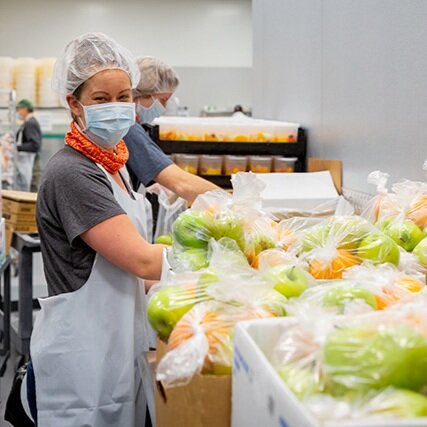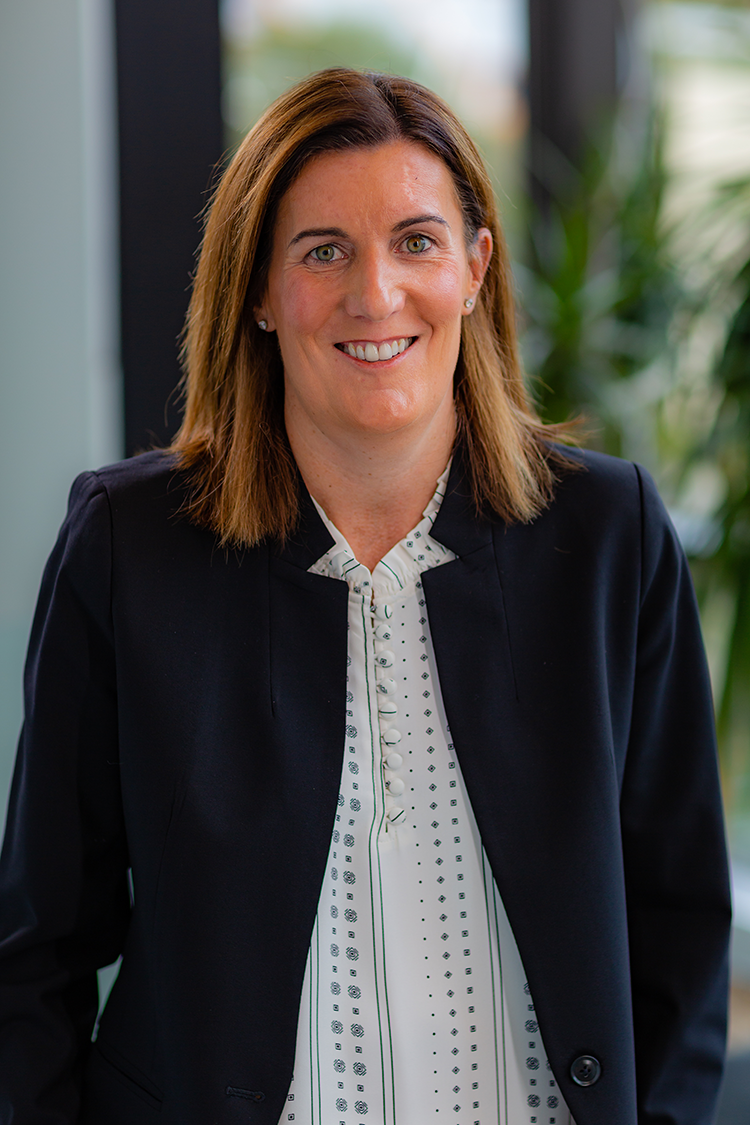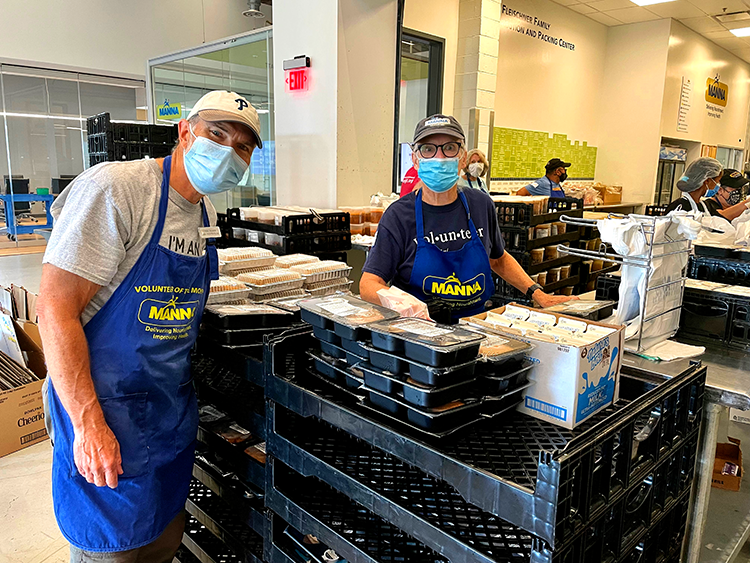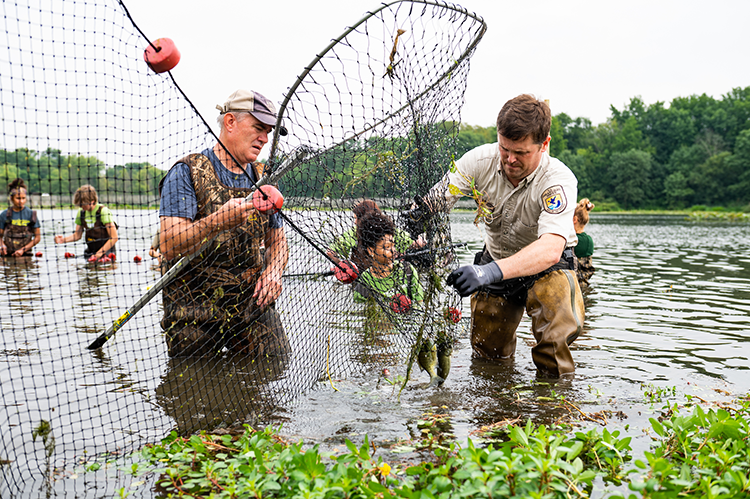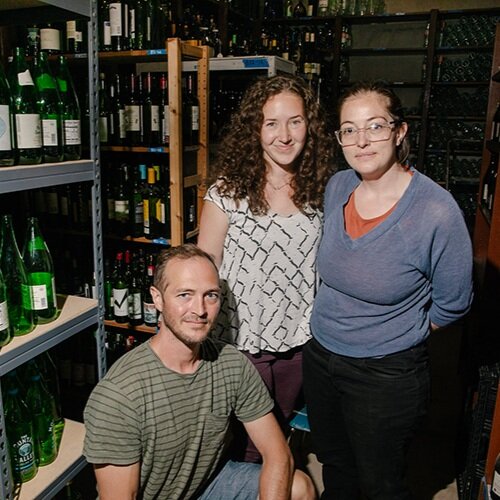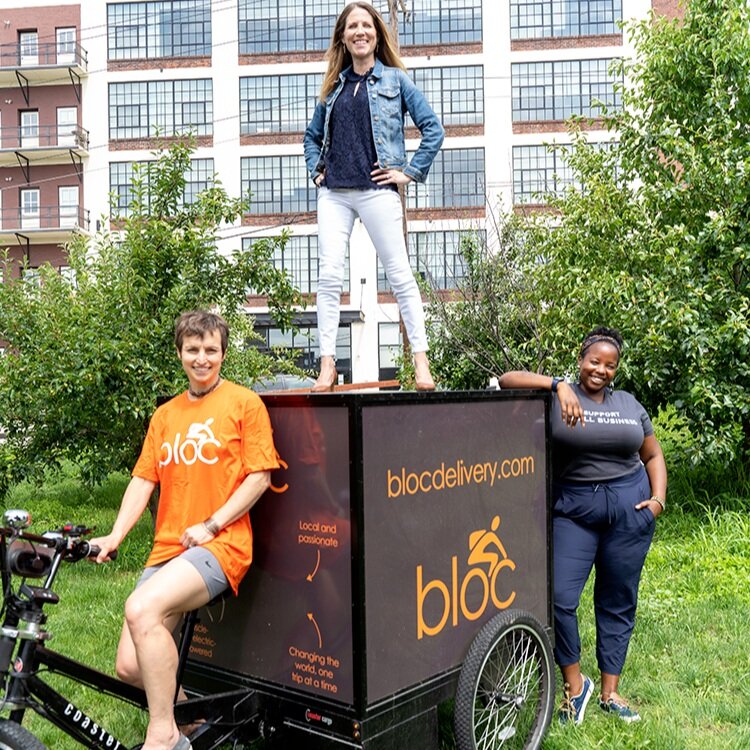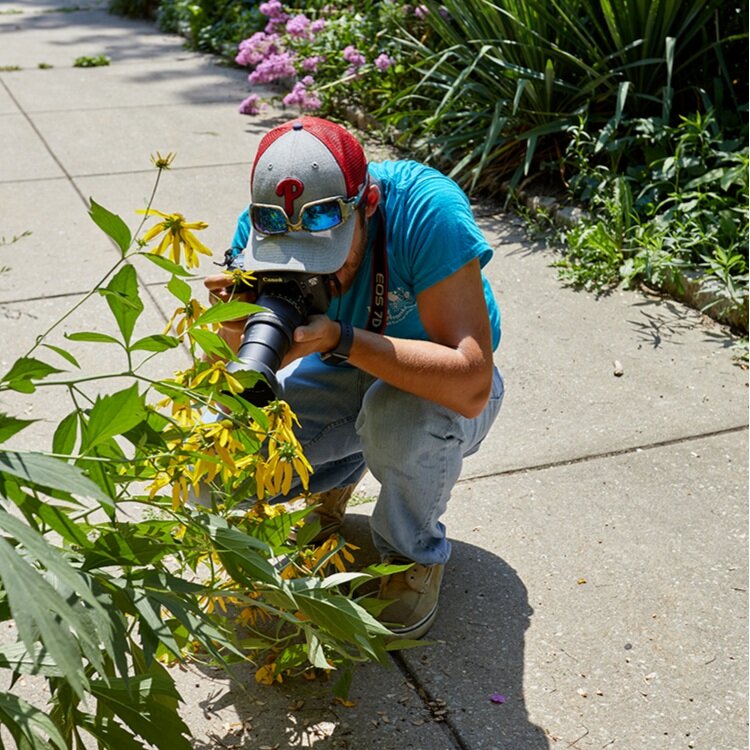In 2005, soon after my mother died, I spent 17 days hospitalized with ulcerative colitis during the holidays. Instead of champagne, I got two units of blood on New Year’s Eve. I lost 30 of my usual 142 pounds. After discharge, I lacked the strength to stand up and cook, much less go to the supermarket. Friends brought me food: they saved my life.
If only I’d known about the Metropolitan Area Neighborhood Nutrition Alliance (MANNA).
‘Food as Medicine’
MANNA began in 1999 in the basement of the First Presbyterian Church in Philadelphia. Volunteers provided food for people with HIV/AIDS. In 2006, in response to a growing need, the program expanded to include more patients, like those recovering from surgery, those discharged after a long hospitalization and people needing a diet to promote the healing of a wound.
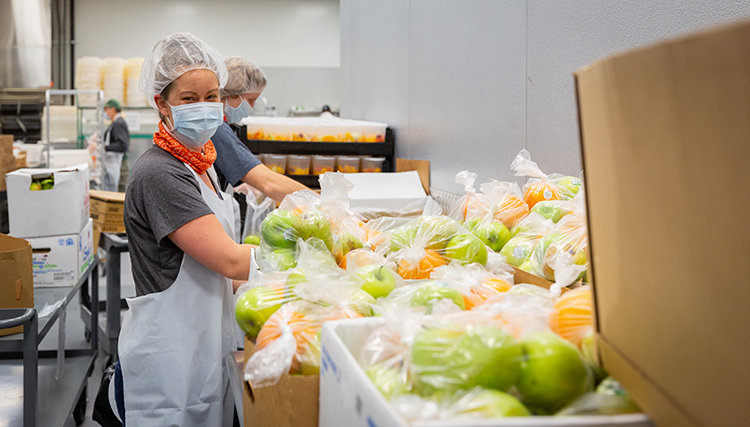
“About 90% of hospital discharge instructions include a prescribed diet,” says Sue Daugherty, 47, CEO of MANNA, which is headquartered in Logan Square. “However, patients may not have the support system to ensure that they get the required food.”
“Pharmaceuticals constitute a key part of healing, but at MANNA we view food as medicine.”
—Sue Daugherty, CEO of MANNA
Enter MANNA, which provided 2 million meals last year to seriously ill people in five counties in Southeastern Pennsylvania, as well as four counties in South Jersey.
“Pharmaceuticals constitute a key part of healing, but at MANNA we view food as medicine,” says Daugherty, a registered dietician. “Each MANNA client receives a free delivery each week of 21 medically tailored meals: seven breakfasts, seven lunches and seven dinners. MANNA offers 11 different dietary modifications, such as low lactose, diabetic/heart healthy, renal friendly, high calorie and soft foods. We provide acute care for people who get prescribed complex diets.”
A day’s sample menu might include apple cinnamon hot cereal and a fruit cup for breakfast; a black bean-and-chipotle burger, Southwest rice and a side salad for lunch; salmon cakes with dill remoulade, brown rice and green beans for dinner; and carrot cake for dessert.
The numbers back up MANNA’s efficacy, according to a 2013 study published in the Journal of Primary Care & Community Health that compared MANNA clients with a matched group of Medicaid recipients. MANNA clients had 50% fewer hospital visits, 37% shorter hospital stays, and “average healthcare costs were $13,000 less per month” than the control group.
Nutrition Counseling
Education is also a critical part of MANNA’s services.
“There’s the visual aspect,” Daugherty says. “People see which foods are wholesome and what a healthy portion looks like. MANNA also offers individual and group nutrition counseling at no charge. (Doing so can otherwise be costly: I paid $100 to consult a dietician about foods recommended for my condition.)
“Our dietitians can cover questions about nutrition-related side effects of medication and controlling high blood pressure and blood sugar.”
Clients may also call if they’re in doubt about certain foods.
The goal is not just to address the immediate need, but to give clients an understanding of good nutrition.
“We have a free four-week cooking class to help clients make wise dietary choices,” Daugherty says. “The last class includes a visit to a supermarket. Supermarkets can be overwhelming, and product labels can be confusing. A label may say ‘no added sugar,’ so a person considers the product a good choice. The class points out that the product may have a ton of natural sugar that makes it problematic.”
MANNA service is temporary, Daugherty adds. “We partner with organizations like the Philadelphia Corporation for Aging and the Greater Philadelphia Coalition Against Hunger to help with continuity of care.”
Social workers, doctors and nurses may refer clients for meals. Prospective clients may also go online and fill out a form to refer themselves, but a medical professional still must sign off.
“The criterion is medical fragility, not income, although most of our clients have a low income,” says Laura Payne, senior manager of marketing and events at MANNA.
The Helping Hands
MANNA depends on donations, fundraisers, grants and insurance partnerships for funding. The organization also relies on volunteers.
“More than 3,400 volunteers gave MANNA nearly 41,000 hours of work last year,” Payne says. They range in age from high school students fulfilling their community service requirement to retirees.
Volunteers staff a kind of assembly line in MANNA’s huge kitchen where one person puts, say, a vegetable into a section of a TV-dinner-type food tray, and then the next person adds meat to another section, and so on. Volunteers also chop vegetables, cook, bake, seal food trays and add nutrition labels. Other volunteers pack individual client’s meals into bags while still another group delivers the meals.
West Philadelphia resident Pam Nelson delivers meals every other Friday for MANNA.
“I had been delivering boxes of food for [State Representative] Rick Krajewski’s campaign,” says Nelson, 61. “When the election was over, I was looking for a way to continue to help, and I heard about MANNA. I get satisfaction simply knowing that I’m providing an essential service for people who have a great need for healthy food.”
Chris Felker, 64, volunteers two or three times a week.
“I’m usually at the head of the breakfast [assembly] line,” he says. “There’s good
energy here.”
Ed Lyons, 84, from Brook Haven in Delaware County, has volunteered for more than 20 years. “I pack meals,” he says. “It’s so convivial here.”
Joan Wells, 73, the “Queen of Volunteers,” stacks pallets and does “whatever needs doing.”
During the pandemic, she brought in homemade cookies on Fridays for fellow volunteers.
“We like to joke that you don’t need to go to the gym by the time you finish your shift at MANNA,” says retired social worker Monica Murphy, 73, of Center City, who often seals fruit salad containers.
MANNA had a 40% jump in 2020 in the meals it prepares and delivers, according to Payne. “We would welcome more volunteers. New volunteers complete a brief online training before registering for a shift.”
To learn more about MANNA, call (215) 496-2662 or visit mannapa.org

